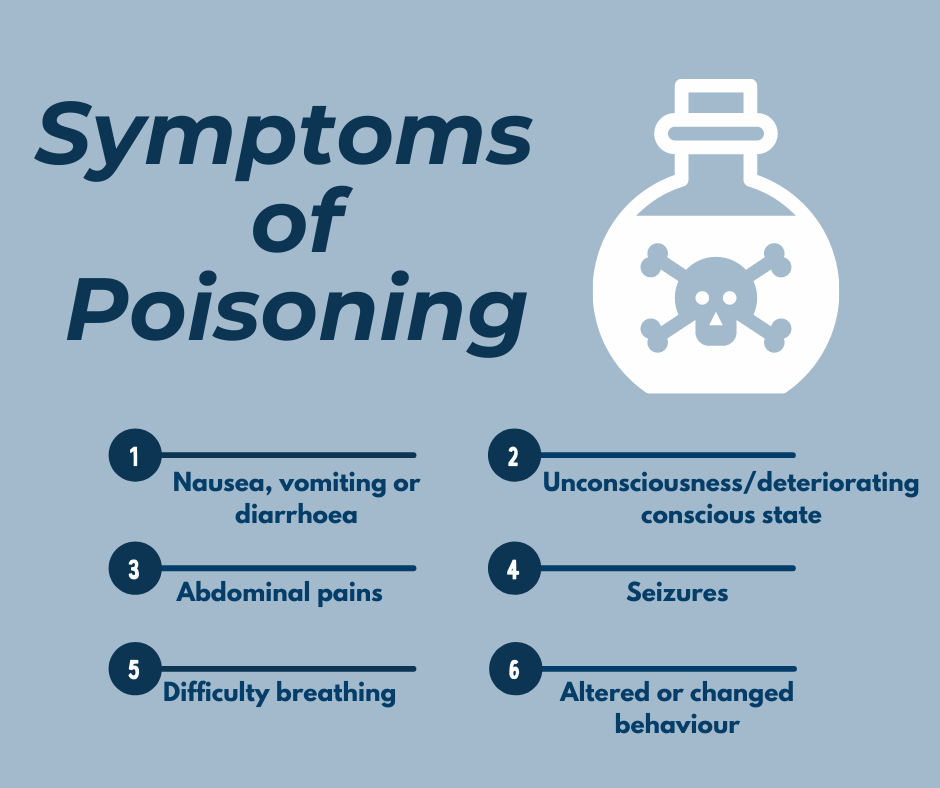 With the build up to the festive period, and the potential for overindulgence that comes with it, we thought now would be a fitting time to touch on the subject of poisoning.
With the build up to the festive period, and the potential for overindulgence that comes with it, we thought now would be a fitting time to touch on the subject of poisoning.
Put simply, poisoning is where a person is exposed to a substance that can damage their health or endanger their life – whether that be an undercooked turkey, a bit too much tipple after dinner, or something more!
Read on to learn more about different types of poisoning and how you can help in an emergency.
Common Types of Poisoning
Poisons can be swallowed, absorbed through the skin, injected, inhaled or splashed in the eyes – there’s more to watch out for than just a bit of raw turkey!
An overdose of medicine is the most common form of poisoning in the UK, which can include both over the counter medicines as well as prescription medicines. Over the Christmas period, alcohol may be drunk to excess (to make it through an evening with the in-laws!), which can also result in the body being poisoned, and proper care should be taken when preparing Christmas dinner in order to avoid salmonella.
Workplace Poisoning
In the workplace people may be poisoned due to exposure to products that they work with.
All products in the workplace that are potentially harmful to health should be accompanied by a Material Safety Data Sheet, from which an assessment can be made of the likely exposure routes, how the product may harm an individual and the control measures required to reduce the risk of exposure. This forms the basis of an assessment under the Control of Substances Hazardous to Health (COSHH) Regulations 2002.
Treating Poisoning
Someone who has been poisoned may be displaying some of the following signs and symptoms:
-

Nausea or vomiting
- Diarrhoea
- Abdominal pains
- Unconsciousness or deteriorating conscious state
- Seizures
- Difficulty breathing
- Altered or changed behaviour
In order to help them, it is important to not become a casualty yourself – check that the area is safe around them, put on any PPE that may be required, and if needed, move the casualty away from the source of the poison.
It’s worth noting any products, medicines or clues such as empty bottles and containers that are near the casualty at this point, as they may assist the emergency services in providing treatment.
If your casualty is conscious and you suspect they have swallowed something, do not induce vomiting, reassure them and call for emergency assistance making sure to remain with them and monitor their levels of response. In the workplace, it is also worth asking someone to retrieve the COSHH assessment for the product to pass to the emergency services on their arrival.
If the casualty is not conscious and not breathing, you should commence CPR and call for emergency assistance.
With Christmas just around the corner, we hope you’ll all stay safe and try not to overindulge too much! If someone does appear to be ill, consult the NHS website for guidance, and if in any doubt call 111 for advice, or 999 in an emergency.
Written by Neil Ward, Training Consultant at WA Management.

Poisoning can be life-threatening, so it is important to act fast. Make sure you’re prepared for an emergency with out First Aid Training – to book your place on this life-saving course, simply get in touch!
To keep up to date with the latest health & safety news and advice, follow us on social media:


